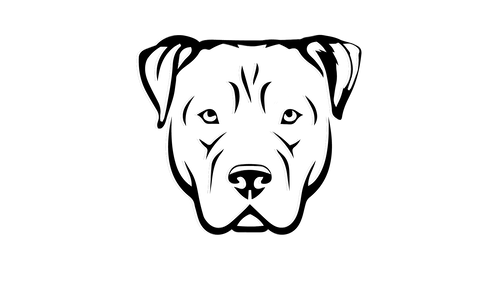If you're new to the dog community you might hear this style of dog collar thrown around a lot in conversation. Martingale collars have a rooted history that started with sighthounds, as the dogs (with smaller heads than necks) would be able to easily slip out of collars that fit to their neck.
Martingale collars now are simply known as a softer version of a choke collar, because it provides a tightening correction to the top of the neck without tightening around the entire neck - thus not being able to essentially "choke out" your dog. The only part of the collar that tightens is the top of the collar, that sits at the top of the neck.
A martingale collar serves two purposes.
The first is so that the dog doesn't back out of the collar. Even if you have to grab hold of the collar ring, the dog will not be able to slide it's way out. And although a common problem with sighthounds, this is also a common occurance with bully breeds. Because many bully breeds have thick necks that can be almost as wide as their heads, they can often find themselves able to back their way out of collars. The same can be said for Mastiffs or loose-skinned breeds that have more excess neck circumference.

The second is to provide what we like to call "soft correction" for training purposes. With any corrective collar (Prong, Choke or Martingale) the premise of a correction is to provide a swift, quick and sharp tug to relay a message through the leash before going back to loose leash walking. So when your dog is not listening to a command or pulling ahead on the leash, providing a quick and sharp "leash snap" to your corrective collar sends a wake-up diversion to get the dog's attention back on you. Your dog should never, as with any corrective collar, be constantly pulling on the collar. This can damage the Trachea even with a flat collar, so if you are struggling with the heel command or reactivity our advise is always to access professional support from a trainer. There is no quick-fix to training and it's worth building that bond with your dog. Martingales are a great tool for those beginning leash training with light to moderate pullers, or those transitioning from a prong or choke collar after seeing improvement in their dog's obedience.

